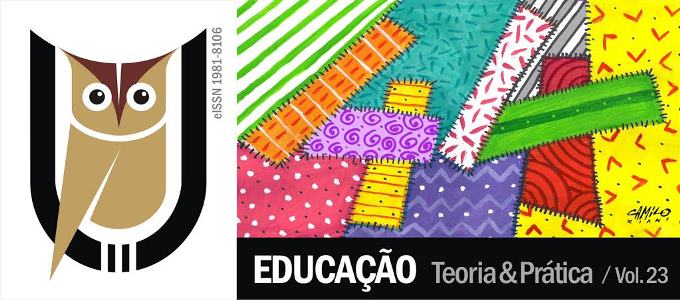History taught: literacy practices and production of meaning
DOI:
https://doi.org/10.18675/1981-8106.vol23.n44.p24-45Keywords:
History Taught. Literacy. Production of Meaning. Curriculum.Abstract
The present study investigates the production of meaning in literacy practices in History education and it is shaped conceptually by the field of language drawn from the Bakhtin as its theoretical framework in interface with the curriculum itself. Therefore, many questions and possibilities stem from this conversation between the fields of language and the curriculum since knowledge is defined as a socially constituted production, structured by ideological signs in its social historicity and the classroom is conceived as a complex, multiple, hybrid and ambivalent space. This study focused on the 6th grade History lessons in classroom environment in an elementary state school in Rio de Janeiro / Baixada Fluminense in 2009 during a determined time. According to the theoretical perspective adopted, the statements are formed in the situated relational process as a social-cultural backcloth whereas the compositional scenario is directly related to the usage of utterances and their inter-subjective interactions. This theoretical approach allowed the coherent analysis of the literacy events materialized within the classroom space where the act of reading a book, copying from the board, writing on the notebook and answering a test are contextualized practices of/in a day-to-day school life.Downloads
Additional Files
Published
How to Cite
Issue
Section
License
Authors who publish in this journal agree to the following terms:
a) Authors assign copyright to the journal, with the work simultaneously licensed under the Creative Commons Attribution License that allows sharing of the work with acknowledgment of authorship and publication in this journal.
b) The policy adopted by the Editorial Committee is to assign copyright only after a period of 30 months from the date of publication of the article. After this time, authors interested in publishing the same text in another work must send a letter to the Editorial Committee requesting the release of the assignment of copyright and wait for a response.
c) This journal provides public access to all its content, since this allows greater visibility and reach of published articles and reviews. For more information on this approach, visit the Public Knowledge Project, a project that developed this system to improve the academic and public quality of research, by distributing OJS as well as other software to support the public access publication system to academic sources. The names and email addresses on this website will be used exclusively for the purposes of the journal and will not be available for other purposes. This journal provides open any other party  This work is licensed under a Creative Commons License
This work is licensed under a Creative Commons License











